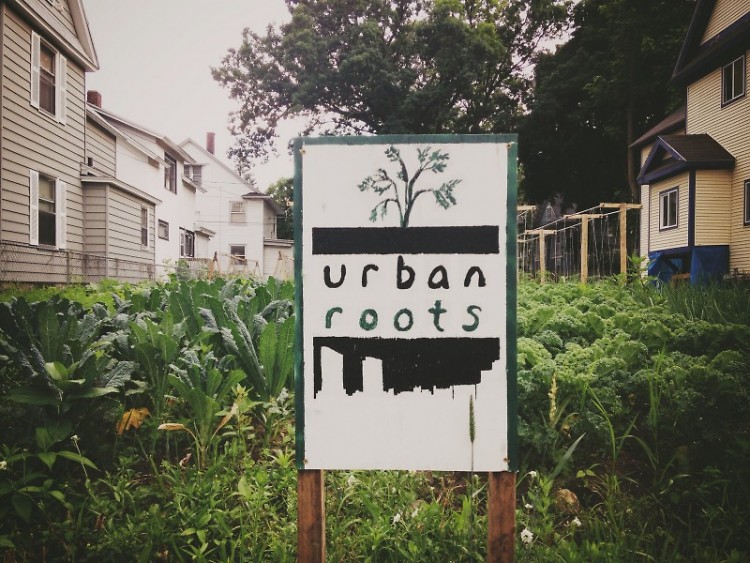I have been in counseling for the majority of my adult life.
I nearly always balked at the seemingly outrageous cost of this endeavor, questioning whether or not it was worth the large amount of money for what sometimes felt like limited growth. Especially when struggling to see improvement in the areas of my life that I was working on, I had a hard time understanding how to justify the cost. There would be some weeks when I would skip the session and invariably regret it, despite not always understanding why. To be honest, it was in the process of building a double-dug bed one day that I realized the potential value of this enterprise.
To make the connection, I have to frame this inside of what I understand: the ecology of food systems.
Since the industrial revolution, society has been built around what is sometimes referred to as a “treadmill of production.” This treadmill, motivated by our capacity for enormous amounts of production because of mechanization, appears at first glance to be a large benefit for society. More resources plus more technological innovation equals more goods for all. It is somewhat challenging to refute the face value benefit of this arrangement. This is the principle that drives black friday, a $170 billion dollar advertising industry and our general obsession with Ikea.
However, a scholar named Allan Schnaiberg argued that with each successive input, we are severely exploiting our health and the health of our planet in the long run. Increasing land, mechanization, herbicides and technological innovation, for example, make it possible for us to momentarily sidestep our ecological limitations. It appears in the short run to be a benefit, but in the long run it is actually quite detrimental to the health of the whole.
Soil, perhaps our most important ecological asset, is a prime example. In healthy agricultural practices, farmers are required to focus on building a healthy soil structure, tilth and encouraging the development of trophic webs for nutrient uptake in crops. Yet this time consuming process is taxing, often unrewarding, in the short term. It is so laborious that it is often quite a turn-off in the face of our highly “treadmilled” economy.
When I began as an urban farmer, I spent a lot of time looking at the myriad of different practices in urban agriculture. SPIN Farming, hydro/aquaponics, season extension, deep organic, permaculture and biointensive were just a few of the many systems we looked at. Though each of these various approaches has their benefits and detriments, ultimately there is one principle that remains constant.
Building resiliency in any system takes time, and it comes at a cost that rarely yields rewards in the early stages.
In every system, each investment that we make is really a choice between two realities: do we invest into all forms of capital that may build resilient systems slowly over time? Or do we invest into inputs that will provide us an almost guaranteed fix in the short term- despite the diminishing return in the long run?
Do we focus on emotional wellness or do we bury our troubles?
Do we build ecological health or do we drown out the reality of our ecological devastation?
Do we develop long-term models of empowerment and solidarity or do we focus on short-term charitable fixes?
Schnaiberg argues that in order for us to shift away from this treadmill, we must invest in a different way of thinking about economy.
Framed differently, I remember a particular day talking to a friend of mine about food and farming systems. After we had been chatting for a while, he commented that perhaps there isn’t any difference between the “necessity” of Starbucks in the morning and the “necessity” of petroleum-based fertilizers. So much of the time we are so busy meeting our needs with momentary solutions that we forget that there might be much richer and more holistic long-term solutions to those needs.
When I started to realize this, I began to understand that counseling is an exercise in my personal, mental and emotional resiliency. It is ostensibly a way of investing into building a more healthy and whole self rather than sending those inputs directly toward short-term fixes from the treadmill. While many of us would prefer (myself included) to avoid wrestling with the wounds in our past and our present, it is being present to these and developing mental and emotional resilience that enables us to do better with the next challenge.
For years before we started Urban Roots, I conceptualized urban agriculture the way many of us do: as an interesting novelty or a compelling niche market. Now however, I realize it is something much more. Growing and raising some of our food in the city is a powerful tool and a vehicle for re-imagining abandoned or marginalized places not as liabilities or problems but rather places that are capable of their own social and ecological resiliency. It is at least one answer to the “Now what?” question many of us ask when constantly hounded with the barrage of suffering in the world.
The reason why I do what I do is that I believe that the health of our bodies, our communities and our ecosystems is invariably and inextricably linked.
Resiliency is what a world in need requires. It needs charity, but charity is not enough alone. It needs relationships, but relationships will evolve. A resilient system- be it a person, a family or an ecosystem - is one that can adapt, flex, change, evolve and bounce back under the weight of life.
On Saturday, November 21, we will beginning to breathe some new life into a building at 1316 Madison to be the new home for Urban Roots in the Southtown neighborhood. As we hope to continue with our mission of education and empowerment through urban agriculture in Grand Rapids, we hope you might consider joining with us.
The Rapidian, a program of the 501(c)3 nonprofit Community Media Center, relies on the community’s support to help cover the cost of training reporters and publishing content.
We need your help.
If each of our readers and content creators who values this community platform help support its creation and maintenance, The Rapidian can continue to educate and facilitate a conversation around issues for years to come.
Please support The Rapidian and make a contribution today.

